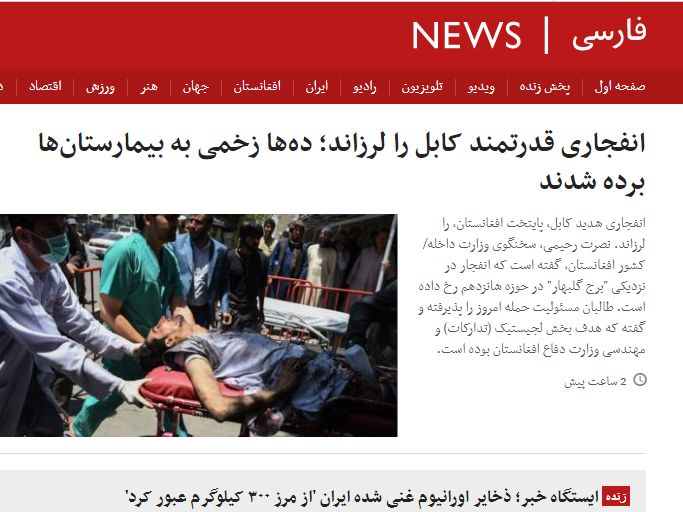
The BBC and the National Union of Journalists have welcomed a new United Nations report highlighting the harassment and persecution faced by BBC Persian staff based in London.
UN assistant secretary-general Andrew Gilmour presented the report, on cooperation with the United Nations on human rights issues, at a UN Human Rights Council meeting in Geneva yesterday.
In the report’s section on Iran, extensive reference was made to the branding of BBC Persian as “anti-Iranian” and its journalists reportedly being followed, questioned and receiving threats against family members.
The document from the UN’s Secretary-General also said the international body had been told that some of that harassment followed statements made by BBC Persian at a Human Rights Council session on the issue.
The report said: “Journalists reported being called ‘anti-Iranian’ and being accused of undermining Iran for their statements at the UN. In March 2018 they were reportedly followed and questioned at and in relation to their participation in the Human Rights Council in Geneva.
“Another journalist reported threats against family members, including warnings about their son participating in the UN advocacy work related to special procedure communications.”
It went on to note that BBC Persian journalists were reportedly attacked by Iranian state media outlets and subject to abuse on Twitter after they raised issues facing them at the UN.
BBC Persian, which broadcasts from studios in London, is banned in Iran but still reaches 13m people there.
The report also said that, during a UN presentation, the Iranian Government accused BBC Persian of “pumping blind hate, fabricating false news and provoking disruption and destruction”.
BBC News director Fran Unsworth said the UN report was a “disturbing illustration of the relentless distress” faced by BBC Persian staff.
“When they raise legitimate complaints about harassment at the UN, they are intimidated as a result,” she said.
“It is fundamental that appeals to the UN should be expressed without fear and these reprisals are of deep concern to all of us who defend freedom of expression.”
BBC World Service’s legal counsel Caoilfhionn Gallagher QC and Jennifer Robinson, of Doughty Street Chambers, said the harassment of BBC Persian journalists engaging with the UN was “not just an attack on freedom of expression, but an attack on the integrity of the UN system”.
NUJ general secretary Michelle Stanistreet added: “It is outrageous and completely unacceptable that BBC journalists are being penalised and subjected to further abuse and harassment as a consequence of speaking out at the UN.”
During her presentation, Anahita Shams said a faked pornographic image of one BBC Persian presenter had been sent to their teenage son, but did not name the journalist.
She also told the UN that the spreading of fake images and accusations of “sexual indecency” were the main tactics being deployed against female journalists.
It was revealed in March that Iranian authorities were continuing to target journalists at BBC Persian.
Journalists said they were unable to mourn the deaths of family members back home because they were unable to return to Iran and attend funerals because the country had outlawed their work.
They also said family members had been detained, had their passports confiscated and assets frozen.
Picture: BBC Persian
Email pged@pressgazette.co.uk to point out mistakes, provide story tips or send in a letter for publication on our "Letters Page" blog
